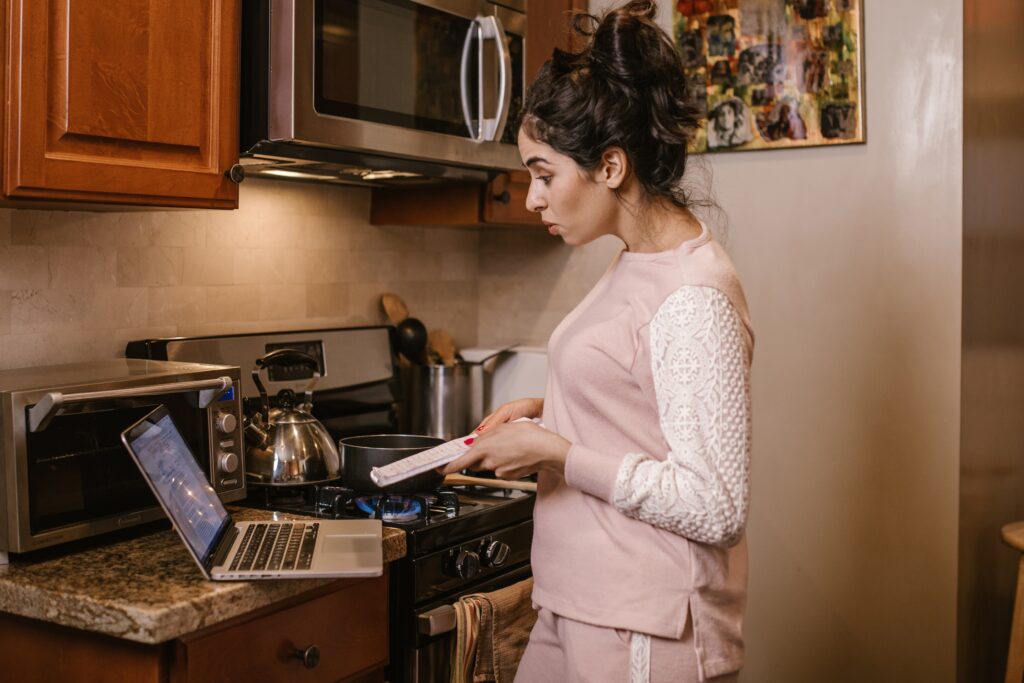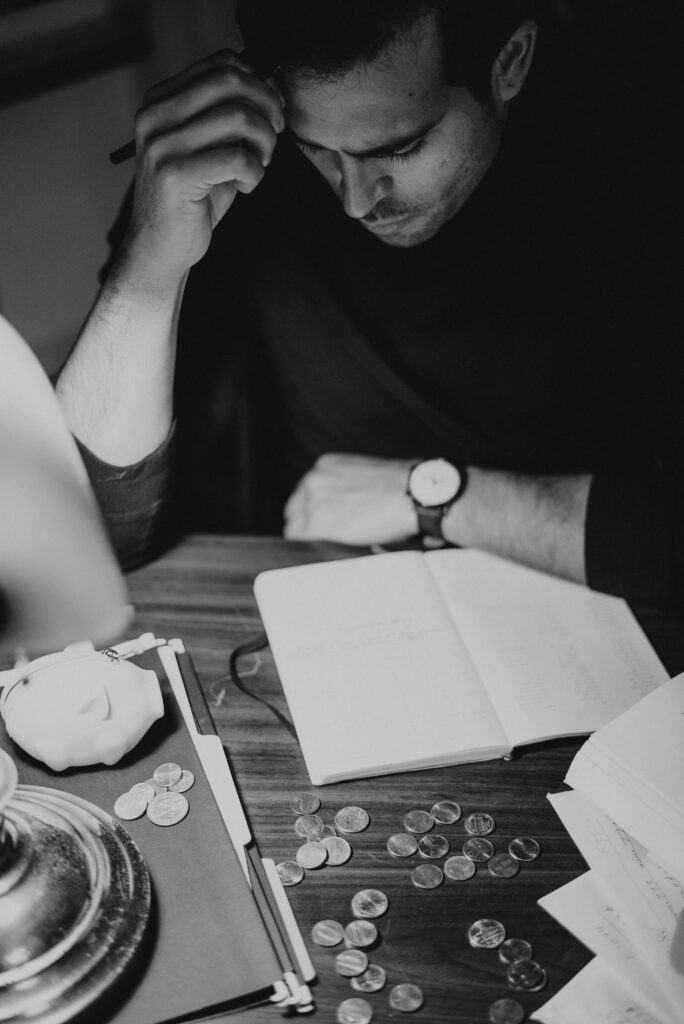
The majority of you might be traveling to study in UK Universities for the first time and have had your parents handle finances back at home. As an international student, managing your finances can be challenging. Now that you have been accepted to your dream University in the UK to study, you need to know that the most crucial financial aspect of a student’s life is Budgeting. You should make a plan for how, when, and where you want to spend your money. It can be less stressful to study abroad if you learn how to manage your money and how to live within your means.
How should international students in the UK manage their finances?
To answer this question read our tips to know how to go about and manage your finances effectively to have a stress-free life in the UK.
Steps to take before you reach the UK
- Accommodation: Book your accommodation, whether it is student halls or private accommodation, book your accommodation before you leave your country and have the documents in place.
- Biometric Residence Permit (BRP): When you apply for your visa from your country of residence, you will be asked to indicate the nearest post office from where you will collect this. This is a secure identity card that provides you proof of the right to study in the UK.
- Personal finances: Carry some physical currency along with you for initial expenses before you open your bank account in the UK. Get your local currency converted into GBP in your country before you travel.
- Bank: Do some research as to which is a good bank to park your savings in and also note its location, make sure it is somewhat nearby your University for easy access, as you need to go open an account in it. Decide beforehand which one you want to open your bank account in.
The first and foremost steps when you land in the UK
- Check into your accommodation: You must have received a confirmation email and contact details from your accommodation provider. Inform them of your travel date and time of reaching your accommodation to the concerned persons. Take a bus ride to the city where your University is located from the Airport, upon reaching the city, take a taxi to your accommodation address and check into your accommodation. This way you will save money.
- Collect your BRP: If you have digital immigration status you will not get a BRP. But where to go and collect your BRP will be given as per your choice in the visa letter that you received after you got your visa. Go and collect your BRP from that address.
- Complete online enrollment: All the Universities instruct their students to complete the online enrolment upon reaching UK, after which you will be informed where you can get your student ID card, and access to University systems.
- Open a bank account: Opening a bank account is very useful for you in order to receive funds from home, send money home, receive your scholarship, pay bills from your bank account, buy stuff using a card, manage your money, etc.
You need to physically visit the chosen bank and take the documents such as:
- Your passport
- Your BRP
- Proof of your UK address (the letter you got from your accommodation provider or any tenancy agreement).
- Letter of confirmation from the University where you are to begin your study.
In 2-3 days’ time, your bank account will be opened and you can start to access it.
What next! you may ask
Create a budget
Yes, we know this is your first time and you do not know what a budget is, we got you covered. Budgeting is where you allocate a certain amount of your money to a particular aspect. Say for example groceries. Back home you liked it you got it no matter the price, but now you need to ask yourself do you need those fancy pair of shoes while your existing shoes are still going good? Instead, you can buy yourself essentials like rice, eggs, vegetables, oil, and noodles (not the instant ones), that would last you a whole week. You get the gist right?
You divide your expenses into essential, non-essential, emergency and others.
Essential expenses
Rent, groceries (food items or ingredients), transport, tuition fees, mobile phone bills, warm clothing, essential medications, and any utility bills if you are in private accommodation, such as water, gas, and electricity bills.
Non-essential expenses
Eating out, going out to pubs, buying drinks and smoke, takeaways, clothes, shoes, and accessories shopping, impulse buying (Buying what catches your eye), movies and music subscriptions (Netflix, Amazon), gym memberships, sports club memberships, beauty products, and haircuts.
Emergency expenses
For if you lose something, if something breaks, if you become ill, this is for the times when something unexpected happens and you need to have some money kept away for this purpose.

Other expenses
Buying course-related material, getting prints for any assignments or posters, and stationery.
Tips on how to save
Start cooking
Many will panic at the thought of cooking, but, your mum is just a phone call away to teach you some easy recipes to make and eat. Cooking your own food is the sure-shot way where you can save a lot of money.
Yes, there will be times when you are just not in a mood to get out of your bed as you have been working on that assignment/analysis since last night, or just not in a mood at all and would love to order takeaway, the money saved by cooking your own food will help you out in these situations.
Eating out or getting takeaways regularly, though a yum and easy option is expensive and not healthy. Cooking your own food turns out cheaper and is also a healthier option as you exactly know what ingredients are going into your meal.
A sandwich with an omelet is one of the simplest ways to start cooking and learn as you go and well you do have your mum or even your dad for that matter on the other side of the line to guide you through it and by the time you return home you would be an accomplished cook yourself!
Start cycling or walking
Use public transport if you want to get to places which are far off, but better still start cycling and walking, good for your health and you don’t spend any money at all, a win-win situation.
Sharing is fun!
Student halls or private accommodation, look for those that allow more than one person to rent, in that way your share of rent would be a lot less in comparison to living alone which would be very high. Plus the positives do not stop only at the rent, you will have company to socialize with and all of you can contribute small amounts to buy drinks, food, toilet paper, cleaning supplies etc.
Increase your income
You can work part-time while studying to get valuable experience and to earn extra money, however, let your studies be your top priority.
Be mindful while shopping
Co-op is one place where you can buy your groceries and much more at a very reasonable price, Tesco also enables affordable shopping. Primark for your home and lifestyle-related shopping is wonderfully affordable, yet durable and stylish are some of the pocket-friendly options you can check out to save while you shop.
Purchase from local stores instead of high-end chains, look for any sales, look for thrift stores where you get good stuff at throwaway prices, and buy second-hand where possible.
Always show your student ID before you pay to avail discounts for students.
Laundry
Do your own laundry and wash once a week or once every 15 days when you have your laundry basket full of dirty clothes. Keep yourself clean, but try to reuse your clothes at least twice before you put them for a wash.
Socialize
Go out there and enjoy making friendships. Plan out your Saturday nights to socialize and divide and pay for your food and drink bills equally, in this way only one person is not burdened to foot in the bill. Or better still plan out night outs at your student hall or at your shared private accommodation and all of you can bring their own drinks and cook together and have a great time at home.

Paying rent
Accommodation providers require you to pay the rent either weekly, or monthly or every four months, and want you to pay them by cheque or through direct bank transfer. Please check the lease document or rental agreement about the payment schedules and allocate money for the rent payment diligently.
Do not ever make any deposits or payments in cash as the landlord might refuse to acknowledge any such payment and it also means that the landlord is doing some illegal business.
Paying tuition fee
Make sure you have allocated enough money to pay your tuition fees on time. Either you might be paying it yourself, or your spouse or your parents, make sure the payments are done on time.
How to calculate your budget?
Your total income per month
This is the money you receive from your parents, your scholarships, part-time work, loans, grants.
Subtract your essential expenses
From your income deduct or subtract your overall essential expenses like your tuition fees, rent, bills and others as mentioned in the essential expenses above.
Calculate your non-essential or disposable income
The money left with you after you have met your essential expenses, this money is for any emergencies and also for your non-essential expenses.
Apps
Many students take the help of apps such as Money Manager, Mint, GoodBudget to keep track of their savings and spending which you can also explore and choose which suits you best.
Save
After you have allocated your income for various necessities, try and save at least 10% of your total income for a future necessity of yours. Start building your bank account bit by bit so that one day that dream of yours to go on a holiday to your favorite destination or to buy a house can be realized, or for buying the coat or the sneakers, or the guitar that you have been eyeing for, for long, or for buying yourself or you loved one a lovely gift for the special day.
All this does not mean you fret over your money all the time and not have a good time at all. Have a clear mind and a good budget covering all your expenses, use apps to help you deal with your budget and be stress-free.
Let yourself loose once in a while and grab that takeout, go have a drink at your favorite pub and enjoy your life while also being mindful of your personal finances to live a stress-free student life.

